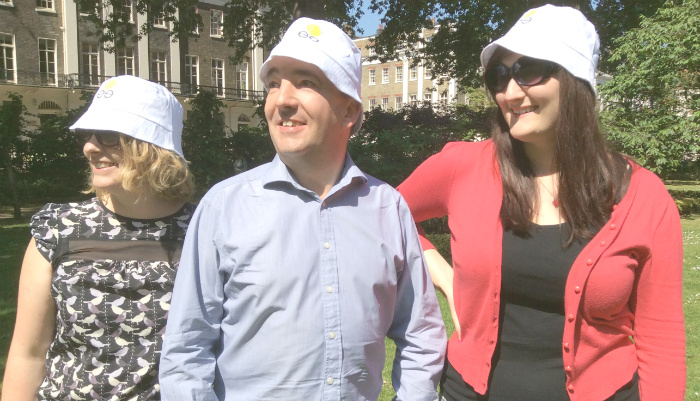At the ARMA annual conference, Efficiency Exchange sought to discover how to make research administration more efficient. Ian Powling rounds up delegates’ contributions to this exercise.
The Efficiency Exchange team has just returned from a pleasant couple of days by the sea at ARMA’s annual conference in Brighton.
We invited delegates to offer their ideas for making academic research administration more efficient and effective and heard a range of views on sharing good practice, collaboration and streamlining processes.
I’d like to thank all who contributed efficiency ideas in our workshop and via our online survey and give a special mention to Lynda Agili, head of research office at Goldsmiths University of London who won an M&S voucher in our draw. Welcome also to all ARMA2015 delegates who’ve just signed up to join our community.
What you told us
The value of efficiency: research managers are very often under considerable pressure to do more with the same resources. We heard one view that thinking about efficiency was vital for standing still, rather than going backwards.
You are not alone: colleagues can sometime feel that the challenges they face are unique to their university, and yet when they get talking to their peers at events such as ARMA2015 they realise that they are not alone.
Appetite for sharing: there is a real interest in peer to peer sharing of ideas and good practice and exchanging via forums. Often the solutions are out there and some universities have made notable gains in streamlining procedures and structures.

Time to innovate: it can be difficult to carve out the time to plan for change. The burden of compliance with regulation was cited as a notable barrier to thinking time.
Too much bureaucracy: we heard from delegates about unnecessarily-extended procedures for authority and decision taking.
Lack of empowerment: insufficient flexibility in procedures can restrict professionals from moving things forwards. One example we heard was a sign-off authority being the same for £100 as for £1m. Couldn’t less senior staff members deal with lower value transactions in the name of efficiency?
Silos and structures: While too many institutions continue to be constrained by silo structures, we heard of satisfaction where the institution has struck a good balance between centralised and distributed administrative processes.
Streamlining funding applications: there was concern about the duplication of effort involved in applying for funding with a desire for streamlined ethics processes and fewer forms.
Utilising assets: we heard about equipment bought with grant funding that subsequently is not used. Perhaps there is scope to make better use of assets via the sharing networks that are available such as equipment.data.uk and Kit Catalogue.
Please indicate below which of the above topics you’d most like to see action on. Please choose up to three.
- More empowerment of less senior staff members (60%, 3 Votes)
- Streamlined funding application processes (60%, 3 Votes)
- A good balance between centralised and distributed admin processes (40%, 2 Votes)
- More sharing of ideas and good practice (20%, 1 Votes)
- Better use of assets via sharing networks (20%, 1 Votes)
- More recognition of the value of efficiency (0%, 0 Votes)
- Time allocated for innovation (0%, 0 Votes)
- Streamlining of decision taking procedures (0%, 0 Votes)
Total Voters: 5
 Loading ...
Loading ...
- More empowerment of less senior staff members (60%, 3 Votes)
- Streamlined funding application processes (60%, 3 Votes)
- A good balance between centralised and distributed admin processes (40%, 2 Votes)
- More sharing of ideas and good practice (20%, 1 Votes)
- Better use of assets via sharing networks (20%, 1 Votes)
- More recognition of the value of efficiency (0%, 0 Votes)
- Time allocated for innovation (0%, 0 Votes)
- Streamlining of decision taking procedures (0%, 0 Votes)
Total Voters: 5
Poll closed

Any more ideas?
We’d love to hear about any more ideas for delivering more efficient research administration. Here’s how to contribute: it only takes a minute or two. Please add your comments via this form.
Ian Powling is digital programmes lead at Universities UK








